The NMC Graduate Students’ Association (NMCGSA) serves as the primary body addressing graduate student affairs within the NMC community. Its Executive Council convenes regularly to address student concerns, organize social events, orchestrate the Annual Graduate Students’ Symposium, oversee the publication of the Symposium proceedings, and facilitate communication between faculty and students. Additionally, the NMCGSA maintains a representative within the University’s Graduate Students’ Union (GSU) to advocate for broader university-wide graduate student interests.
“Community, advocacy, and collaboration.
These values are at the core of the NMCGSA.”
We share the narrative of the new Executive Council, marking the first formation of NMCGSA in four years following its hiatus during the pandemic.
The NMCGSA is built upon the foundational values of community, advocacy, and collaboration, fostering an inclusive social environment characterized by friendship, support, and unity. Dedicated to representing and championing the interests and welfare of NMC graduate students to both the Department and the University, the NMCGSA is committed to enhancing the professional skills of graduate students through initiatives like the annual symposium, providing a platform for research sharing and engagement in organizing this significant event.
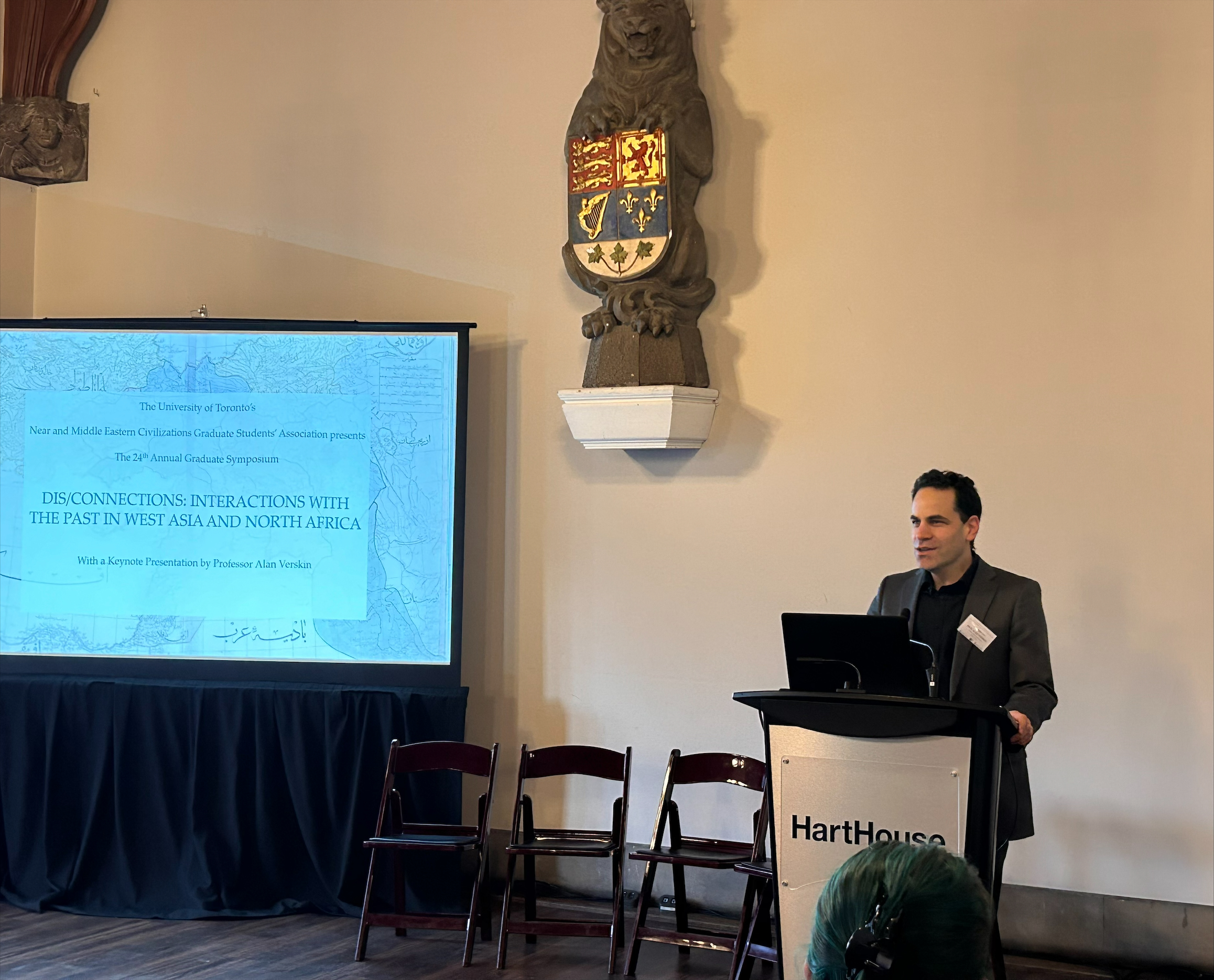 |
|
(Photo Courtesy of the NMCGSA: Keynote speaker Professor Alan Verskin, Department of History, University of Toronto at the NMCGSA 24th Annual Graduate Symposium) |
Furthermore, a primary objective of the NMCGSA is the maintenance of the Grad Lounge and Discord channel, serving as vital spaces for community building and facilitating communication among graduate students. The NMCGSA Council’s vision for the NMCGSA focuses on longevity and legacy. They have taken substantial action to create infrastructure for promoting community which extends into the future, and for ensuring the continuity of the NMCGSA.
Recognizing the importance of sustained advocacy for the graduate student body, the NMCGSA has developed a functional blueprint from which future executive teams can operate smoothly. The blueprint they are referring to is the NMCGSA’s Constitution, which had not been updated in 25 years! This revised Constitution reflects the needs of current graduate students and embraces contemporary technological advancements. Presenting this new Constitution to their membership represents a significant achievement, demonstrating their commitment to serving the evolving needs of graduate students and adapting to the demands of the modern world.
 |
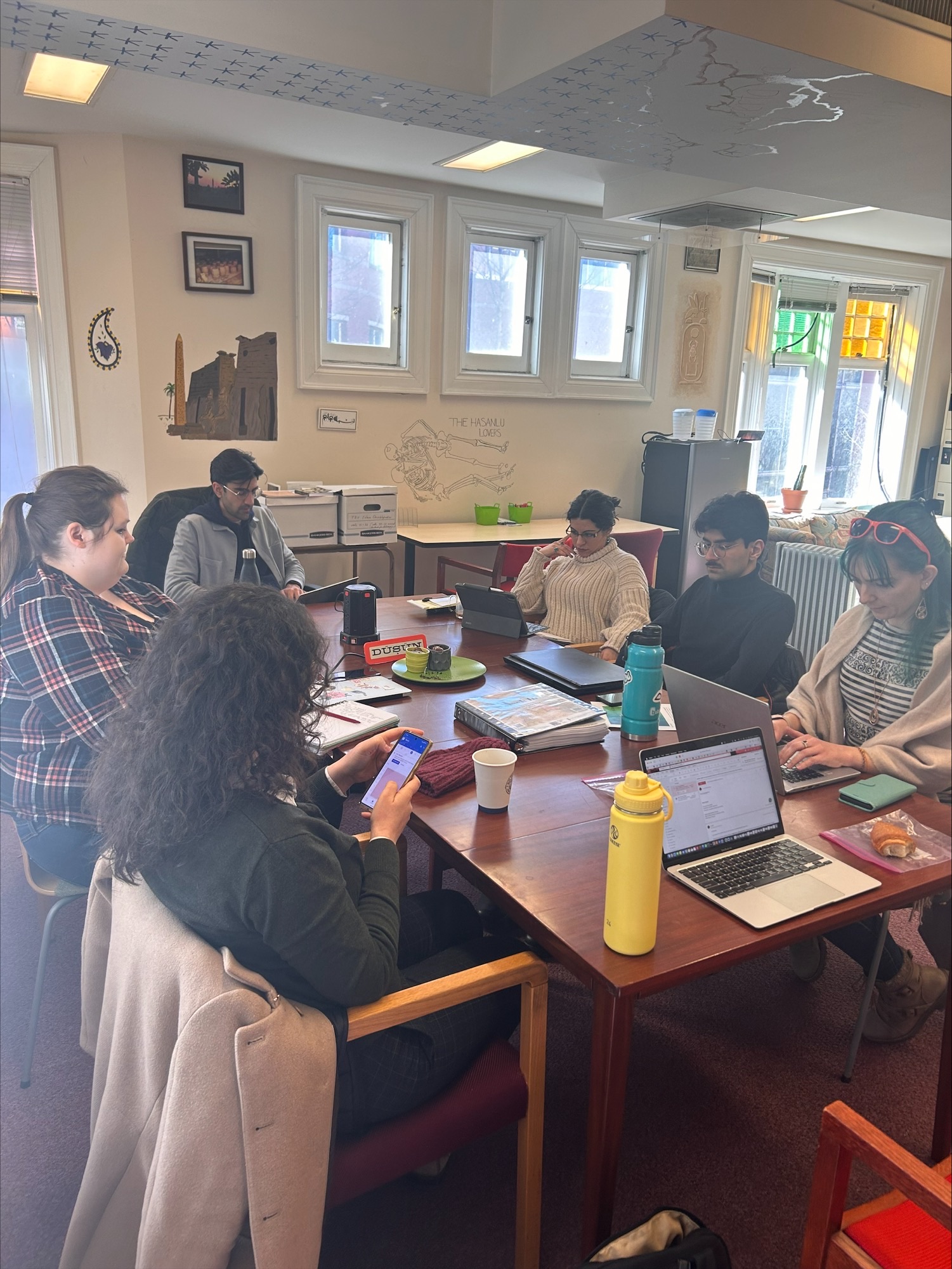 |
|
(Photos Courtesy of the NMCGSA: Committee members at the Grad Lounge) |
|
The NMCGSA's distinguishing characteristic lies in its diversity, mirroring the Department's overall composition. Comprising individuals from diverse backgrounds, each brings forth unique contributions to the community. Their embrace of what is different, as well as the interconnectivity across fields and specializations, makes them unique.
But at the same time, the NMCGSA faces the challenge of embracing diversity among graduate students, each with their own distinct backgrounds and specialties. This diversity poses a similar hurdle for the Department itself, making it sometimes difficult to establish common ground and foster engagement initially. However, by ramping up more social events, they successfully surmounted this obstacle, leading to a noticeable increase in participation and a more vibrant departmental atmosphere.
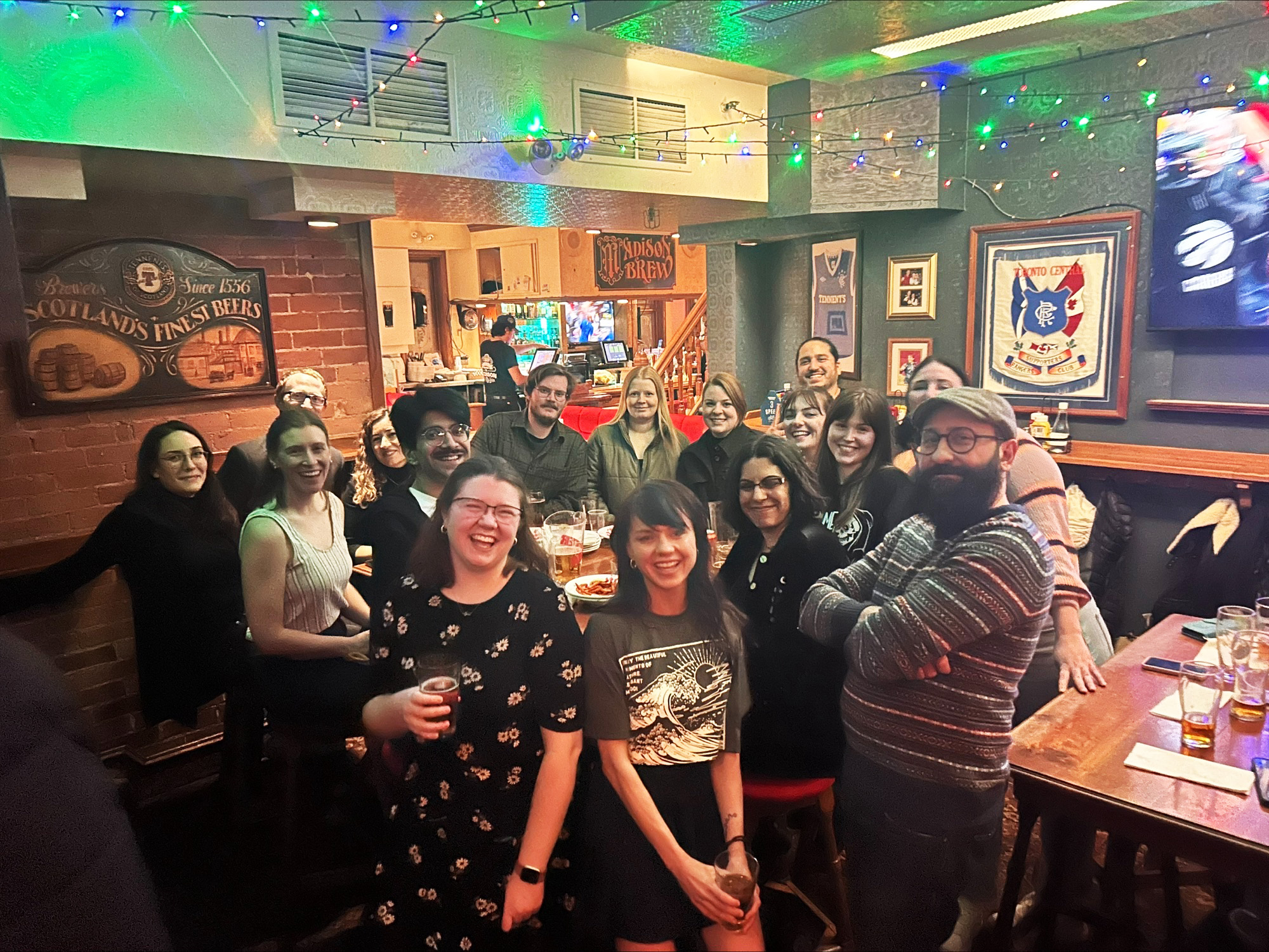 |
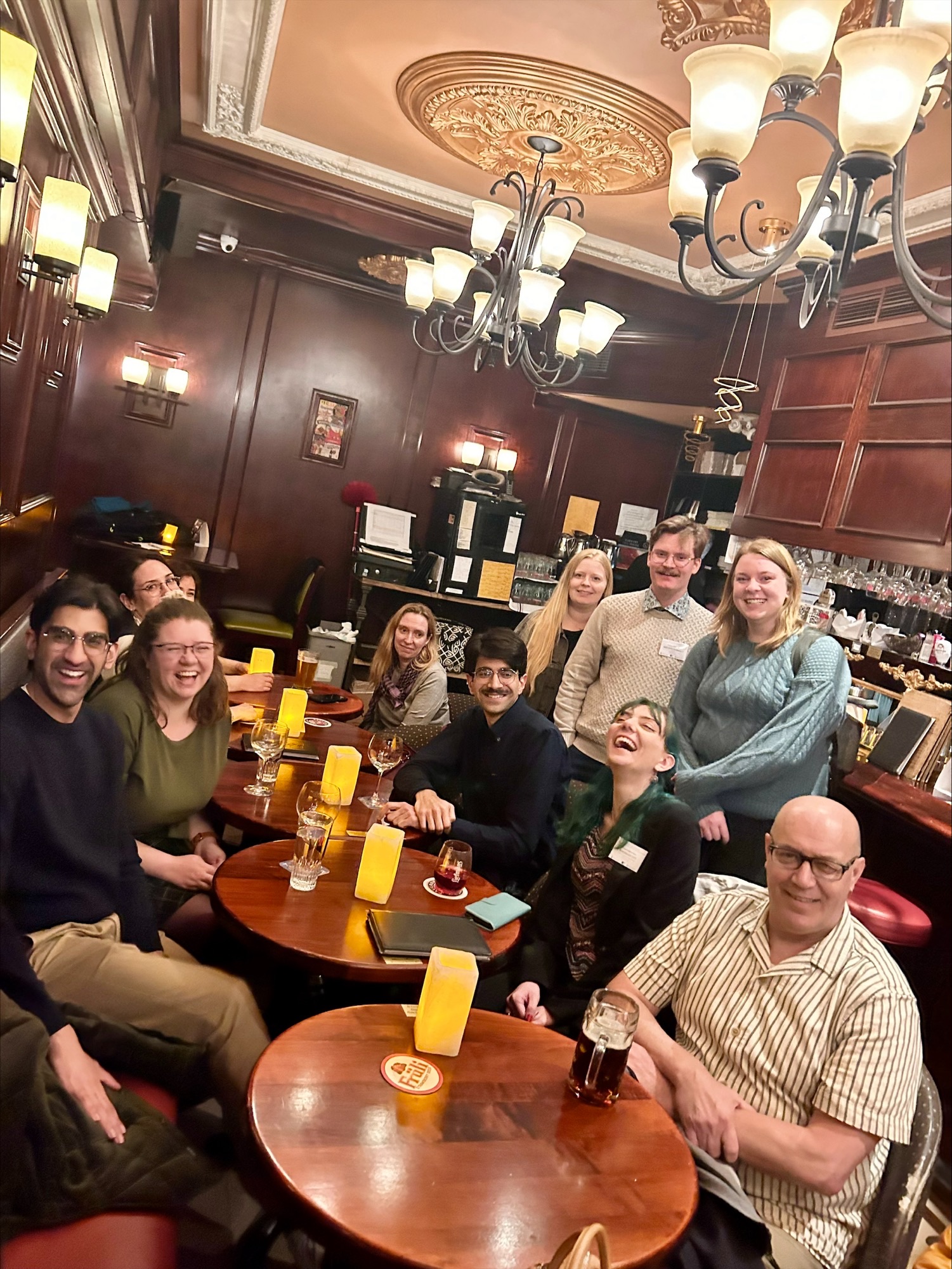 |
|
(Photos Courtesy of the NMCGSA: Pub nights) |
Another significant challenge stemmed from the NMCGSA's previous dormancy. Being the first NMCGSA in four years meant a lack of the guidance of experienced senior executive committee members and dealing with an outdated constitution. Consequently, they undertook the arduous task of completely rewriting the Constitution to align with the current needs and challenges faced by the members. Despite the uncommon challenge of starting from scratch, the team's tireless efforts and effective collaboration, both on a small and large scale, enabled them to achieve this feat.
“We hope that our work during the 2023/2024 academic year will serve as a strong foundation for the future of graduate life at NMC !”
Discover more about the dedicated NMCGSA Council 2023 - 2024, driving positive change and innovation within our community.
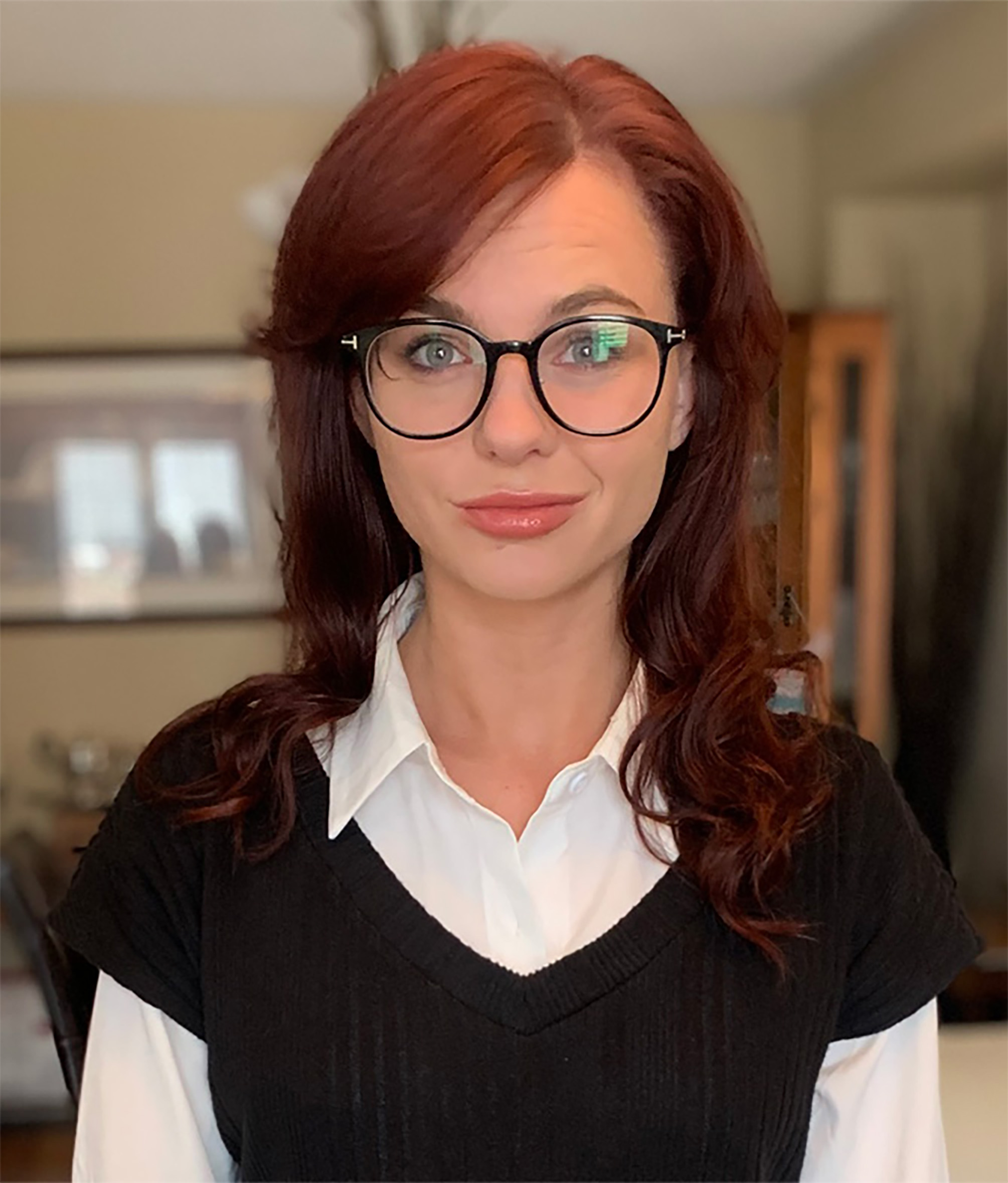 |
President Marla is a 6th-year PhD student specializing in ancient Egyptian astronomy during the Eighteenth Dynasty. Her work examines the employment of astral knowledge in ancient Egypt and seeks to generate a systemized methodology capable of identifying ancient Egyptian astronomers in the archaeological record, by which their social realities (rank, wealth, responsibilities, training, etc.) may begin to be reconstructed. |
In the NMCGSA, she represents the executive team's values and vision to its membership and the University student body. It is her responsibility to help generate measurable goals and to track the team's progress towards those goals. She presides over the team’s bi-weekly meetings, where they collaborate and conceptualize action plans according to the needs and interests of the graduate student body at NMC. She also compiles interim and year-end progress reports outlining the NMCGSA’s progress, achievements, and future recommendations.
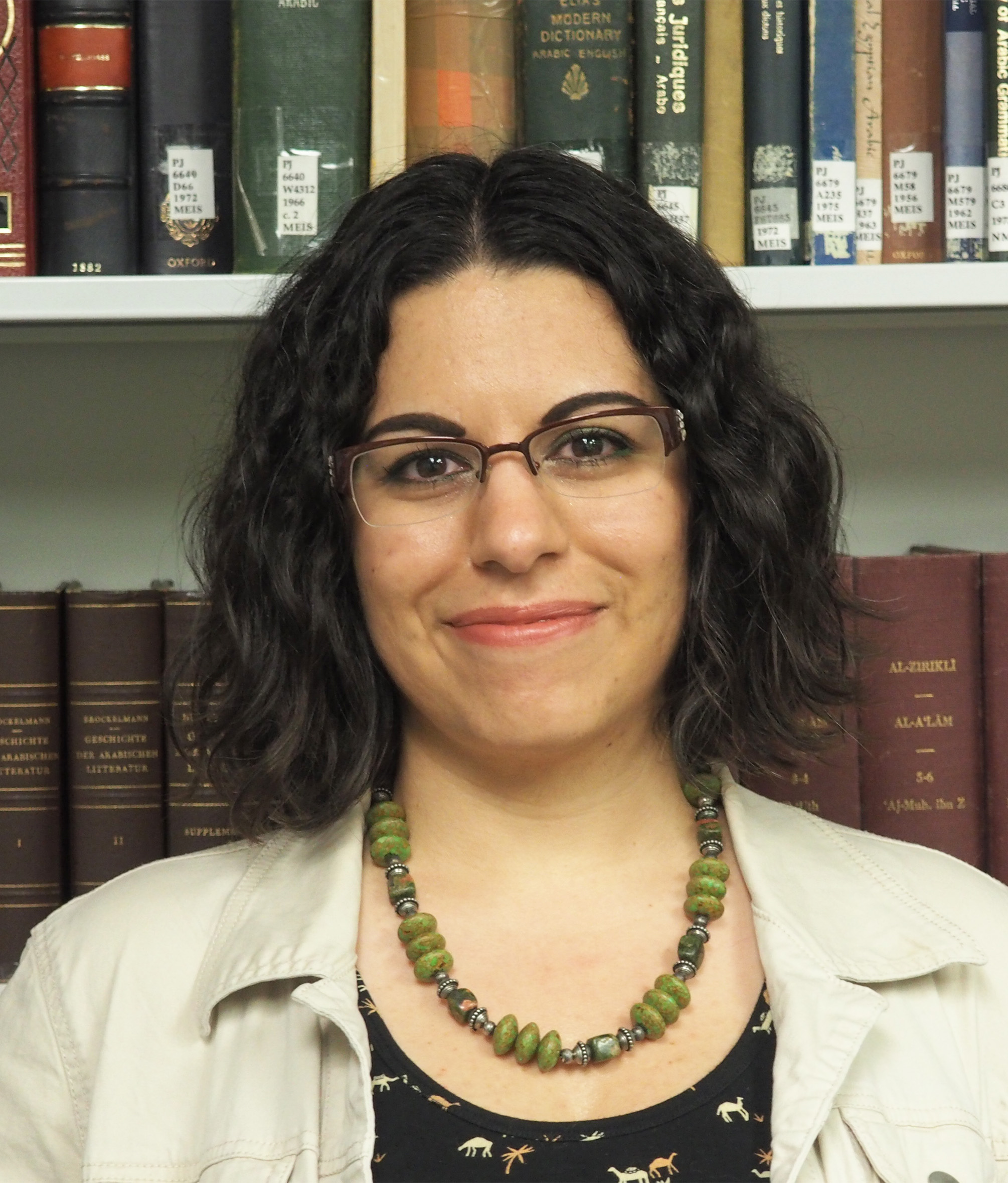 |
VP Communications & Student Outreach Amanda is a 3rd-year PhD student specializing in ancient Egyptian languages, and is preparing to take her comprehensive exams this summer. She has passionately sought to improve her knowledge of the five stages of ancient Egyptian (Old Egyptian, Middle Egyptian, Late Egyptian, Demotic, and Coptic) as well as the various Egyptian scripts (hieroglyphic, hieratic, Demotic, and Coptic). |
In the NMCGSA, she assists the President with administrative tasks and manages digital platforms (Discord, emails, membership lists, website). She communicates with their membership regarding NMCGSA activities, and promotes events on their platforms. ,br>Prioritizing fostering communication and community among graduate students, she created the Graduate Student Discord server in collaboration with Brianne Lynne (VP Academic), and established a U of T Studentorg email account. Both platforms facilitate communication among NMC graduate students.
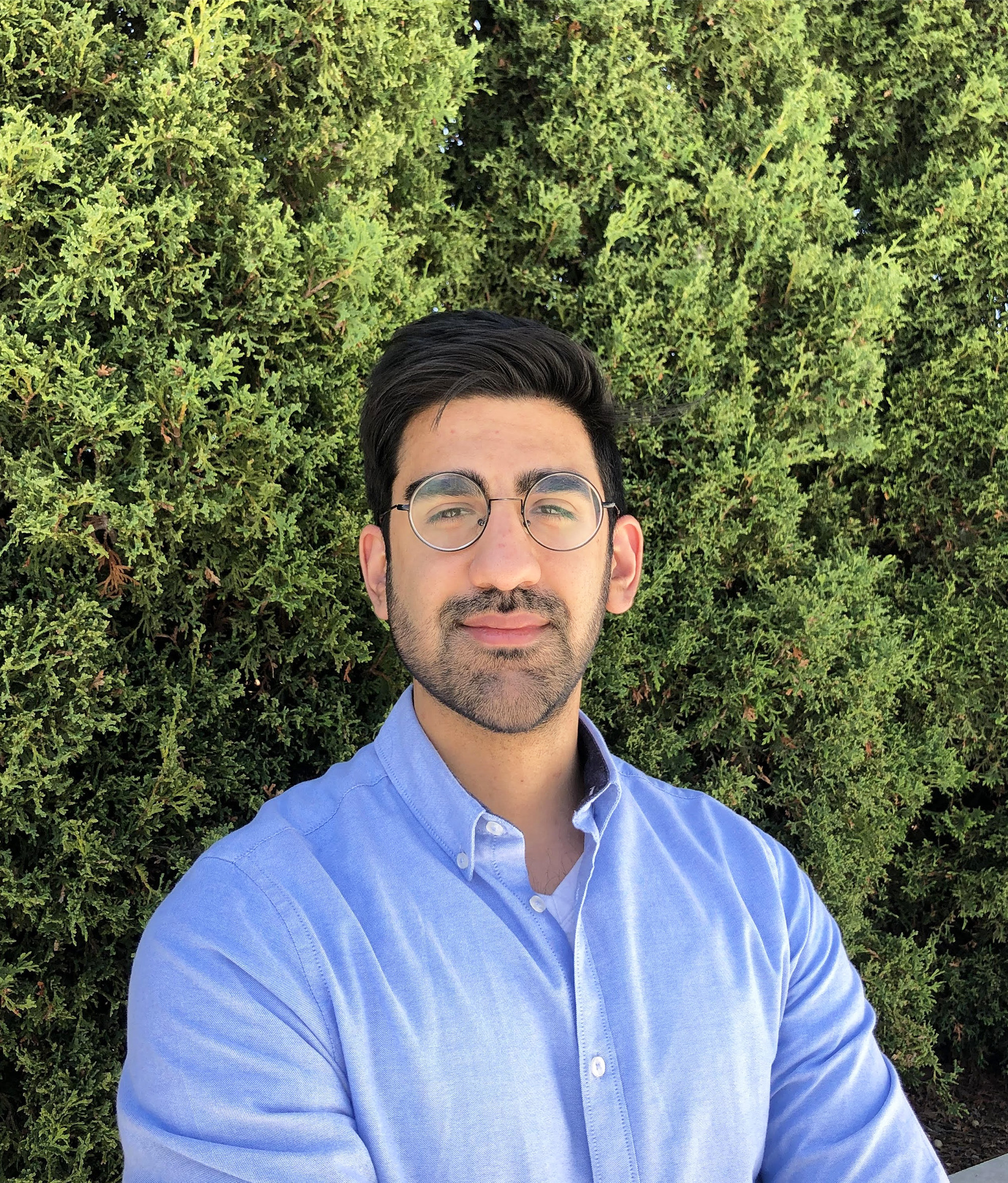 |
VP Finance Faraz is a 6th-year PhD candidate researching how the exemplum (a kind of literary mode in which a hypothetical, fictitious or historical anecdote is used to support a general proposition) was theorized and used by medieval Arabic and Persian writers across a variety of genres, from commentaries on Aristotelian logic and Galenic ethics, to mirrors for princes and epic poetry. |
His dissertation sketches a literary and intellectual history of this medium, culminating in the figure of Farid al-Din Attar, a thirteenth century Persian poet and prose writer whose five major works–uniquely and overwhelmingly–contain hundreds of exempla.
His role at the NMCGSA is to make sure they have the funds to match the ambitions of the executive team’s vision for the year (such as organizing a Symposium) and the needs of the student body. This mainly involves securing financial support from various sources across the University and then ensuring those funds are used responsibly.
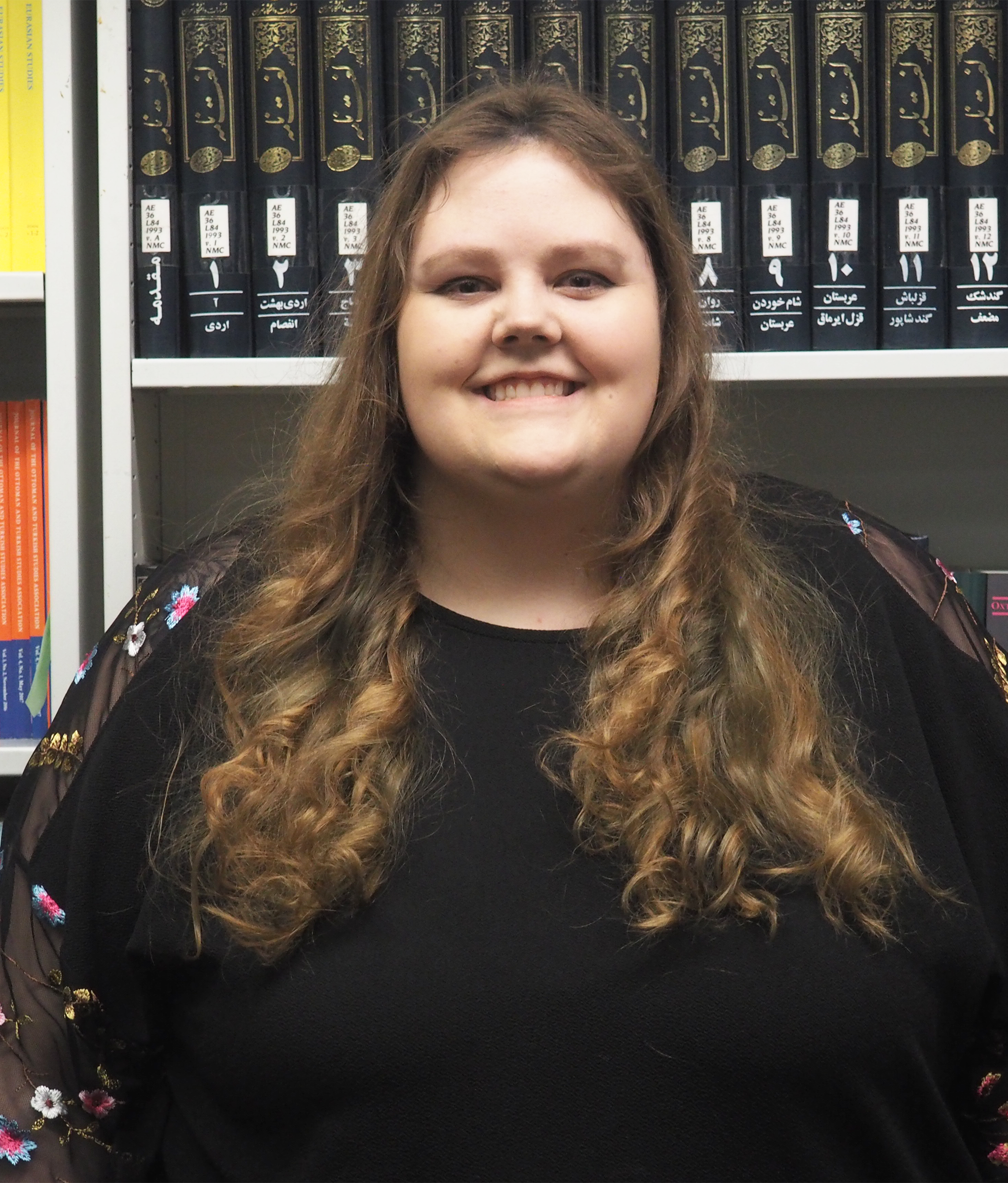 |
VP Internal Raquel is a 4th-year PhD candidate studying Assyriology and Near Eastern archaeology. Her research is focused on the depictions of the mythological being known as the Lahmu (or naked hero with six curls) in Mesopotamian religion, literature, and art. Her dissertation aims to display how the iconography and symbolism of the Lahmu and other anthropomorphic hybrid beings in both art and texts changed over time (3rd to 1st millennium BCE) and how these changes reflect the continuity of traditions and cultural and religious innovations. |
The VP Internal's responsibility is to ensure the smooth functioning of the executive team, notify executive team members of meetings, and record minutes, motions, and action items for all meetings. Her role also entails maintaining and organizing a digital archival record.
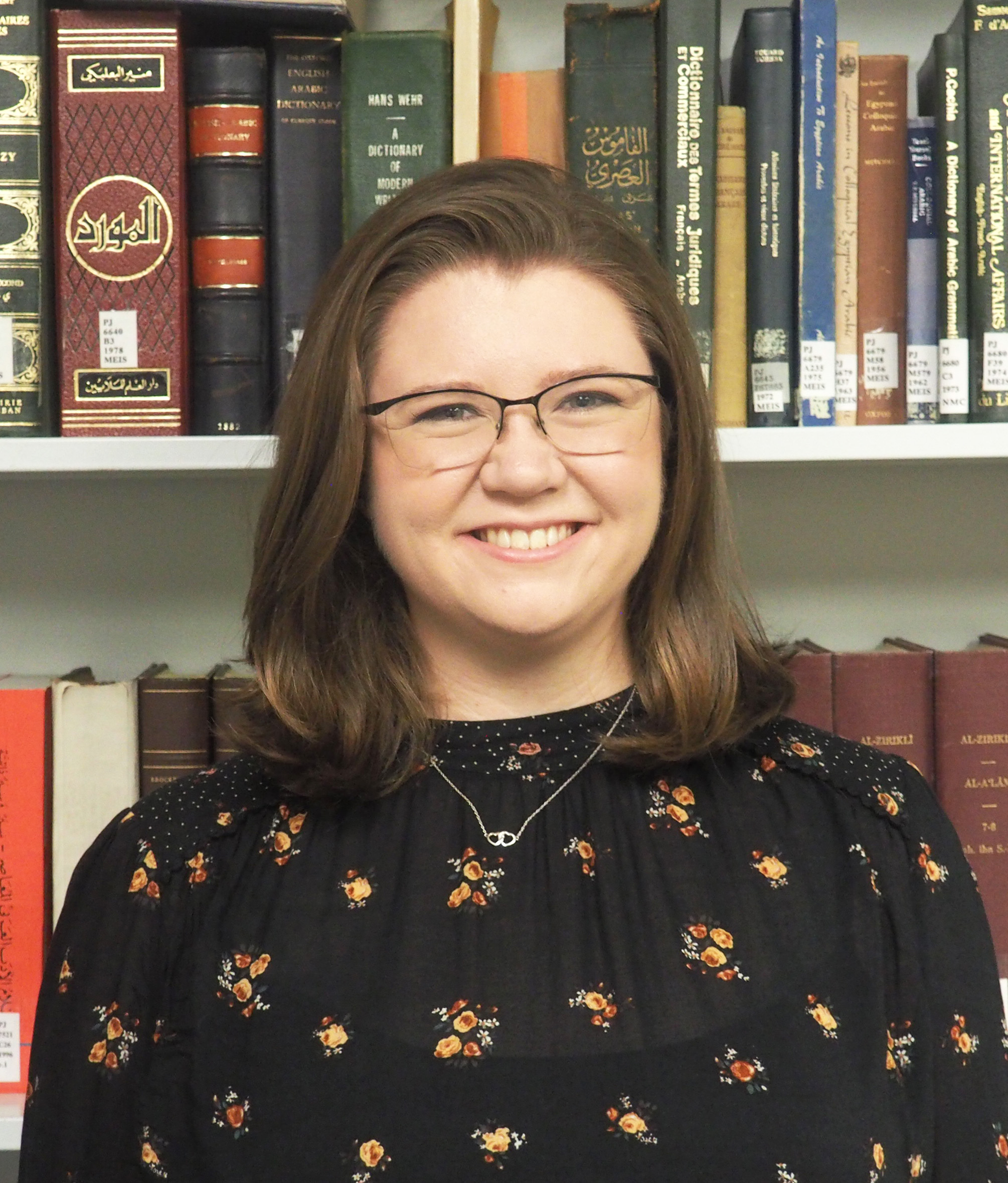 |
VP Academic Brianne is a 3rd-Year PhD student in Near Eastern Archaeology, focusing on the Bronze Age Northern Levant and Northern Mesopotamia as situated within the wider context of the Eastern Mediterranean. She utilizes art historical and archaeological methodologies to explore the ways in which cross-cultural interactions are expressed in material culture, and she is particularly interested in expressions of local identities within contexts of interaction. |
As VP Academic, she is the primary liaison between the Department’s faculty and the GSA executive team. She is responsible for representing and advocating for the interests and well-being of the membership at the regular faculty meetings and other department committees and facilitating opportunities for graduate student professional skill development. In addition, her role involves promoting graduate student access to the Department's academic resources available to membership (e.g., MME Library, RIM, Archaeology Lab, etc.).
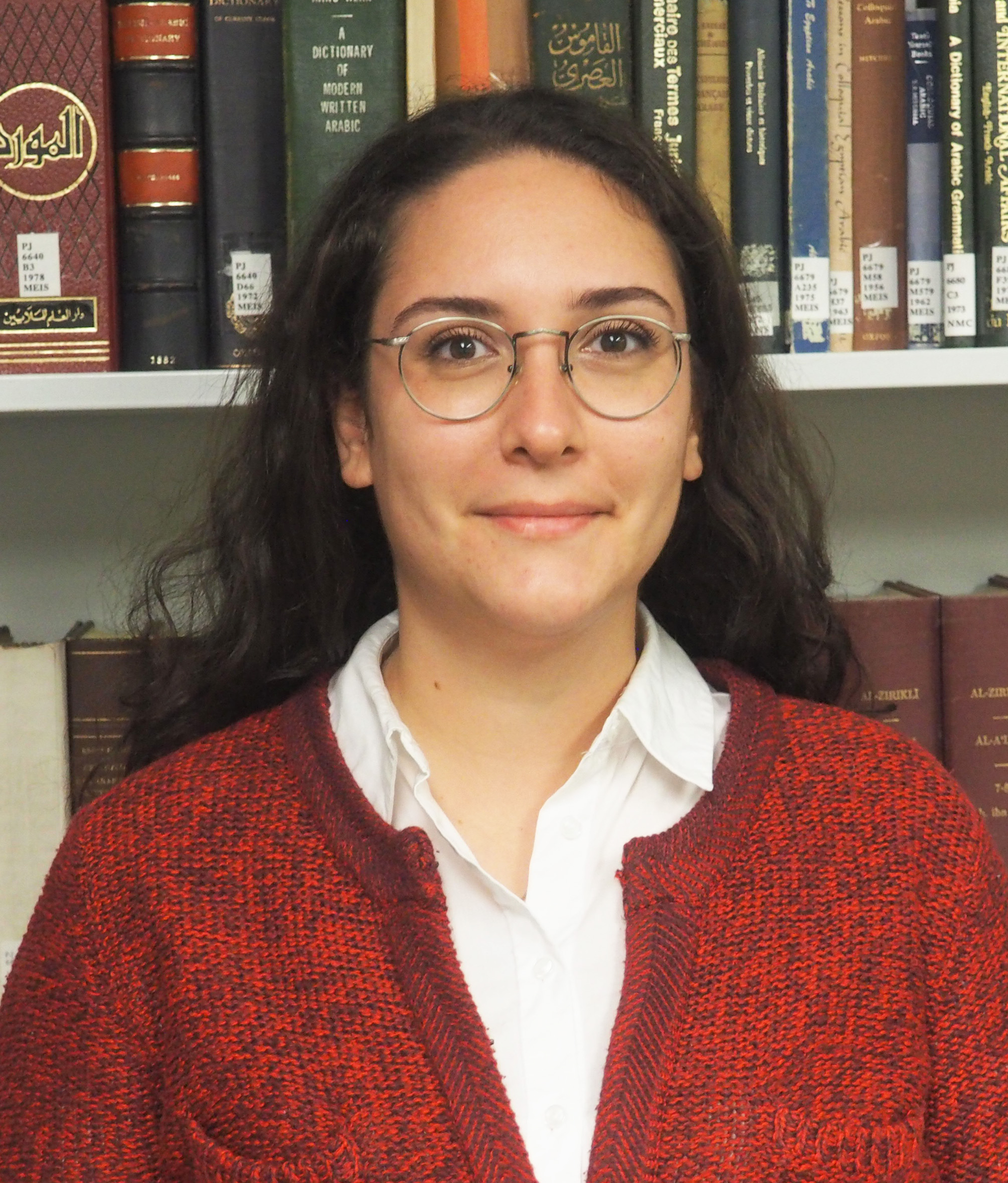 |
VP External Zeynep is a 5th-year PhD candidate in Ancient Near Eastern archaeology and a trained archaeologist. |
As VP External, her job is to represent the NMCGSA at any non departmental meeting which usually includes the schoolwide GSU, CUPE, and any other inter-departmental, U of T or non-U of T organization or event. Her goal has been to cultivate ties with other graduate groups where productive and supportive relationships can be maintained. She believes the NMCGSA has re-established ties with various organizations within U of T, which were lost over the last few years due to the pandemic.
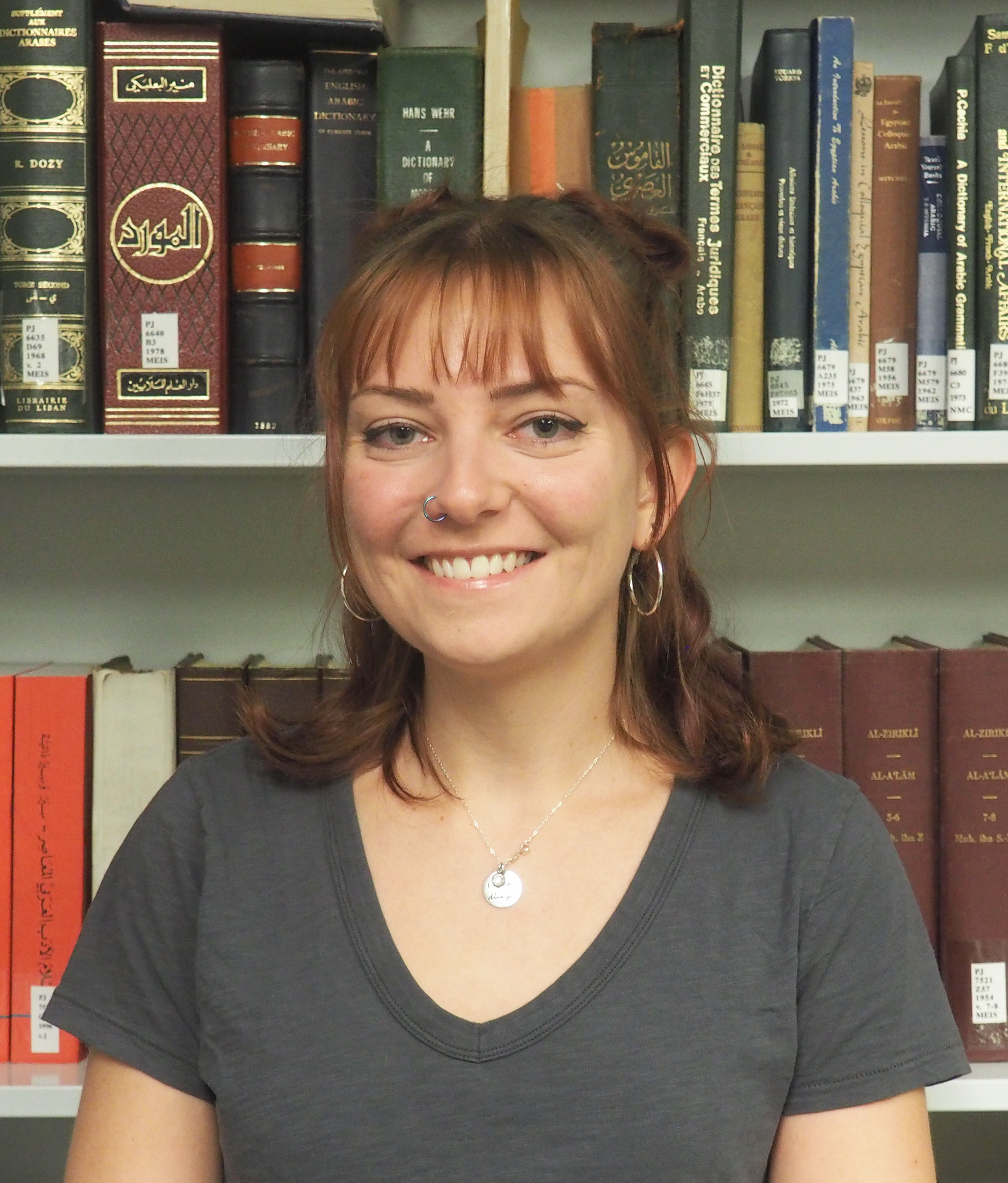 |
VP Events & Operations Rosemary is a 5th-year PhD candidate specializing in Egyptian iconography during the 18th and 19th Dynasties of the New Kingdom Period. |
Her dissertation strives to identify patterns in the spatial (i.e., archaeological, architectural, etc.) and societal (i.e., political, religious, social, etc.) contexts of these symbols as they appear within Egypt, highlighting questions of accessibility, audience, and agency.
As VP Events & Operations, she plans, organizes, and administers social and academic events with the executive team. Leading the Symposium Planning Committee, she revived the NMCGSA Graduate Symposium and coordinated its 24th occurrence. She nurtured community among NMC graduate students through pub nights and end-of-semester socials. She prioritized events fostering academic growth, such as a PhD Application Workshop for Master’s students and Practice Presentation Sessions where students could get constructive feedback on their conference presentations.


